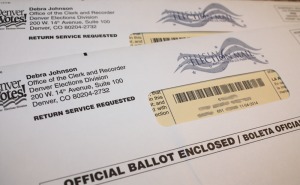The legislative process, it’s been said, is a bit like making sausage: No one really wants to know what goes into certain foods. But in the case of the National Popular Vote legislation, currently pending in the Colorado legislature, it’s critical that the ingredients are examined more carefully.
The product of this particular sausage factory will prove toxic for our republic.

The National Popular Vote (NPV) legislative effort has been quietly gaining steam for years. This California-based group hopes to convince a critical mass of states to join an interstate compact—basically, a simple contract among states. Participating states agree to change the manner in which they award presidential electors. Rather than giving these electors to the winner of a state’s vote, those states would give all their electors to the winner of the national popular vote.
If successful, NPV’s contract would implement a nationwide direct popular vote, effectively eliminating the Electoral College without the bother of a constitutional amendment.
NPV’s contract has gained more support than most Americans realize. To date, 11 states plus D.C. (172 electors) have approved it. This number is just 98 short of the 270 electors needed to put the contract into effect.
NPV proponents hope that anger over the 2016 election will finally drive them across the finish line. But Coloradans would serve themselves—and the country—best if they take time to learn about NPV before acting in haste. Even for those who are angry about the Electoral College and 2016, the inedible sausage emerging from NPV’s plan is far worse.
The problem is best understood if we start with the basics.
The current presidential election process is a blend of democracy and state-by-state action. America holds 51 completely separate, purely democratic elections each presidential election year (each state, plus D.C.). Each state is responsible for its own election. Differences among states’ laws are irrelevant because votes cast in one state do not affect the outcome in another state.
A vote cast in Mississippi can never change the identity of an elector from Colorado. Remember, Mississippi and Colorado are conducting two separate elections. Mississippi’s task is to elect a slate of electors to represent Mississippi. Colorado’s task is to elect a slate of electors to represent Colorado.
NPV changes this. America would still hold 51 state-level elections, governed by 51 sets of election laws. But then NPV would attempt to derive a single outcome—an alleged “national popular vote winner”—from these 51 processes. Suddenly, variances among states’ laws—previously irrelevant—would begin to matter a great deal.
![]() Consider the issue of early voting. Voters in Colorado have made their own decisions on a variety of issues: when early voting starts, how long it lasts, what types of ballots are used, and who is qualified to vote. If Colorado’s voters are competing only against other Colorado voters in a contest to determine the identity of Colorado’s electors, then they have no reason to care what another state has decided about any of these issues. However, once NPV throws voters of all states into the same election pool, then many problems begin to arise. With NPV in place, the identity of a Colorado elector could be changed by a vote cast in Mississippi or Alaska or any other state—even though they are casting ballots under differing sets of laws.
Consider the issue of early voting. Voters in Colorado have made their own decisions on a variety of issues: when early voting starts, how long it lasts, what types of ballots are used, and who is qualified to vote. If Colorado’s voters are competing only against other Colorado voters in a contest to determine the identity of Colorado’s electors, then they have no reason to care what another state has decided about any of these issues. However, once NPV throws voters of all states into the same election pool, then many problems begin to arise. With NPV in place, the identity of a Colorado elector could be changed by a vote cast in Mississippi or Alaska or any other state—even though they are casting ballots under differing sets of laws.
The most basic rule of democracy is that every voter should be treated equally. How can Colorado voters be equal with those in Mississippi if they have less time to vote? Or if it is harder to obtain an absentee ballot?
There are many other differences among states’ laws: States differ in whether they allow felons to vote. States have different criteria for what triggers recounts, or they might have different ideas about how to count a hanging chad. Some states have Voter ID requirements. Others do not.
Each of these differences is an opportunity for someone, somewhere, to file a lawsuit claiming that he or she has been unfairly treated compared to some other voter on the other side of a state boundary.
Some NPV supporters seem to believe that a new, centralized federal election code will eventually be adopted, solving these problems. How short-sighted.
How can a federal election code be enacted without the cooperation of those states that rejected NPV? Even if such a law is passed, does it unconstitutionally intrude on state sovereignty? And do we really want such laws in the first place? Consider that the new federal election code would surely come with a new federal agency, tasked with carrying out all these new federal election responsibilities. Someone would be needed to run this new bureaucracy. The President would appoint someone.
In other words, incumbents would be responsible for their own re-election processes. The Founders would surely be horrified to learn that modern Americans had created such a powerful Executive.
Sausage can be really tasty in the hands of an expert wurstmeister. But it’s a toxic mess when created by a political group trying to do an end run around the constitutional amendment process.
Tara Ross is the author of “The Indispensable Electoral College: How the Founders’ Plan Saves Our Country from Mob Rule.”


